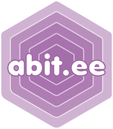OpenAI was compelled to take extreme measures to address the massive creation of Studio Ghibli-style images through its new GPT-4o image generator, raising important questions about AI ethics and copyright.

G. Ostrov
The recent launch of OpenAI's updated GPT-4o image generator led to unexpected consequences. Users began massively creating images in the recognizable style of Japanese animation studio Studio Ghibli, sparking serious discussions about copyright and the ethics of AI usage.
The Viral Ghibli Effect
After the release of the new image generator version, users discovered that the system could create images strikingly similar to the works of the legendary studio known for films like "Spirited Away" and "Howl's Moving Castle". Social media was literally flooded with images of pets, selfies, and various objects stylized in the characteristic aesthetic of Hayao Miyazaki's studio.
Copyright Under Question
While style as such is not protected by copyright, critics express concern that OpenAI may have achieved such similarity by training its model on millions of Studio Ghibli images without proper permission. This raised important questions about the boundaries of AI usage and protection of artists' intellectual property.
OpenAI's Response
In response to growing criticism and potential legal risks, OpenAI was forced to limit its generator's capabilities. The system now refuses to create images in the style of Studio Ghibli and other living artists, which was a direct consequence of public resonance.
The Future of AI Art
This incident highlighted complex ethical questions facing the artificial intelligence industry. On one hand, technology opens new creative possibilities, on the other hand, it may undermine the rights and livelihoods of professional artists.
Official OpenAI website: https://openai.com
If you have any problems, contact us, we will help quickly and efficiently!




